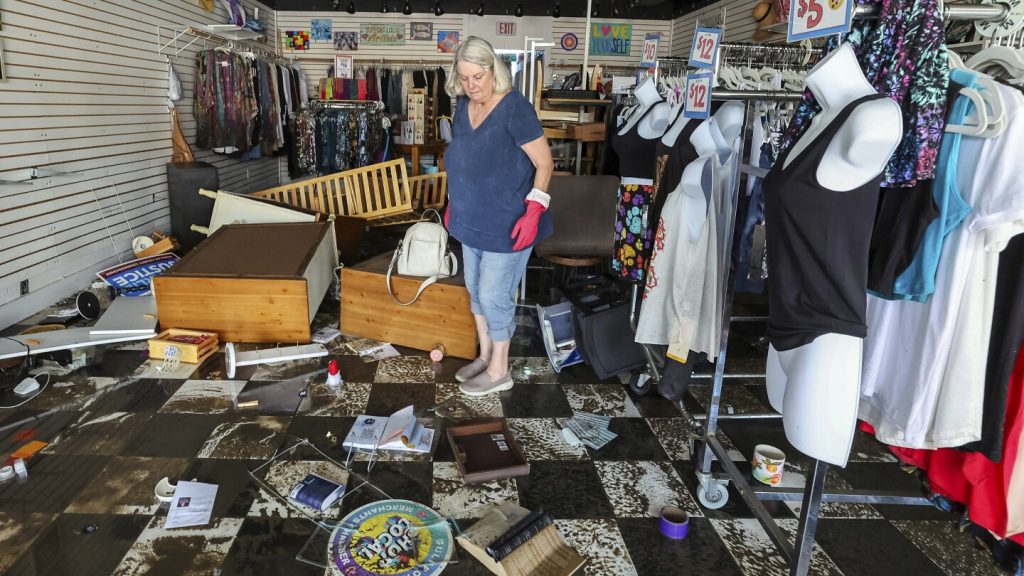Hurricane Helene caused widespread destruction and claimed the lives of at least 44 people as it tore through the southeastern U.S. The storm made landfall in Florida as a Category 4 hurricane before moving through Georgia, the Carolinas, and Tennessee, leaving in its wake uprooted trees, damaged homes, and flooded creeks and rivers. Western North Carolina was particularly hard hit, with landslides and flooding forcing the closure of major roads. Residents in affected areas faced power outages and continued threats of floods in the aftermath of the storm.
Hundreds of water rescues took place across the region, with dramatic scenes unfolding in rural areas like Unicoi County, Tennessee, where patients and staff were airlifted from a flooded hospital. The storm, now classified as a post-tropical cyclone, lingered over the Tennessee Valley, prompting ongoing flood and flash flood warnings for parts of the southern and central Appalachians. Among the fatalities were three firefighters, a woman and her twin infants, and an elderly woman killed when a tree fell on her house across several states.
In areas like Tampa’s Davis Islands, residents grappled with the aftermath of storm surge, with homes, businesses, and apartments flooded but fortunately, no reported fatalities. The immense rainfall from Hurricane Helene led to record-breaking precipitation levels, with Atlanta experiencing its heaviest 48-hour rainfall in history. Moody’s Analytics predicts billions of dollars in property damage as a result of the storm, with infrastructure and power lines severely impacted in some regions.
Climate change has been identified as a contributing factor to the intensity of storms like Hurricane Helene, which rapidly intensify in warming waters. The Big Bend region of Florida, known for its coastal marshes and natural beauty, was hit hard by the storm, with residents like Susan Sauls Hartway losing their homes to the destructive force of Helene. Evacuations were issued across multiple states, but some residents chose to stay behind, leading to risky situations and challenging rescue efforts.
The aftermath of Hurricane Helene brought stories of tragedy and resilience, with communities banding together to navigate the devastation left in the storm’s wake. Government officials, including President Joe Biden, offered prayers and support for survivors, while emergency response teams worked tirelessly to assist those in need. Forecasters warned of continued flooding risks in North Carolina and other areas, with the full extent of the damage likely to unfold over the coming weeks. As the Atlantic hurricane season progresses, the impact of storms like Helene serves as a stark reminder of the importance of preparedness and resilience in the face of natural disasters.


